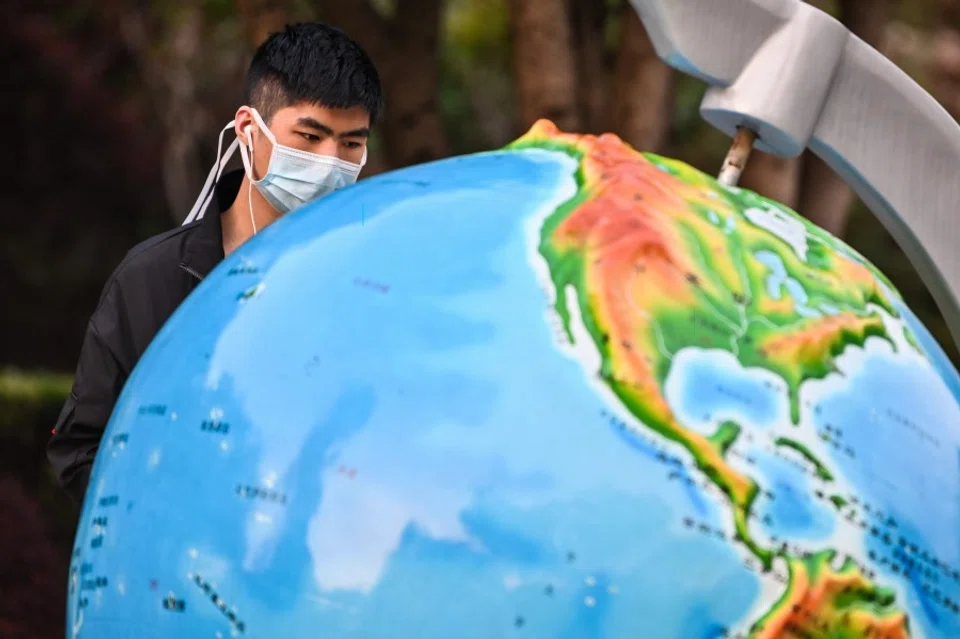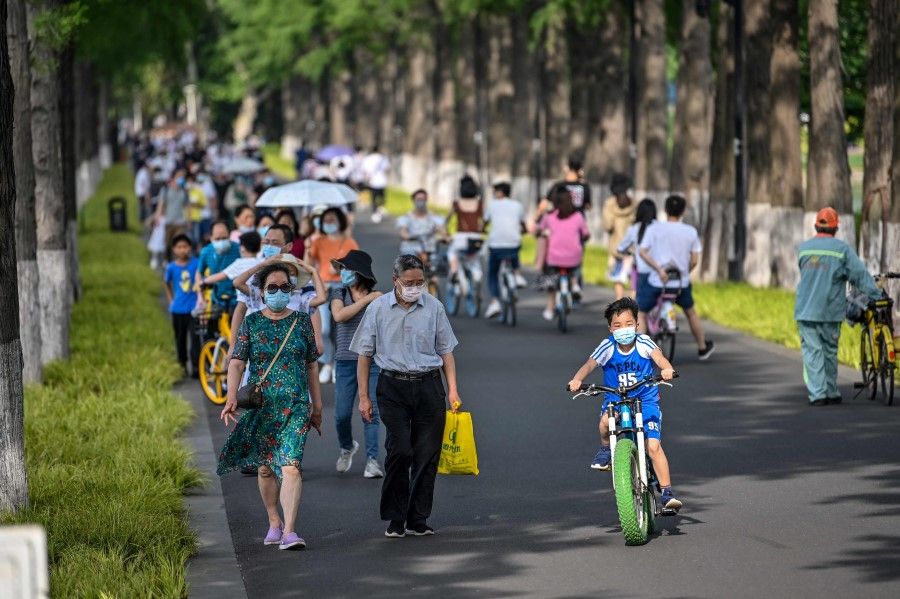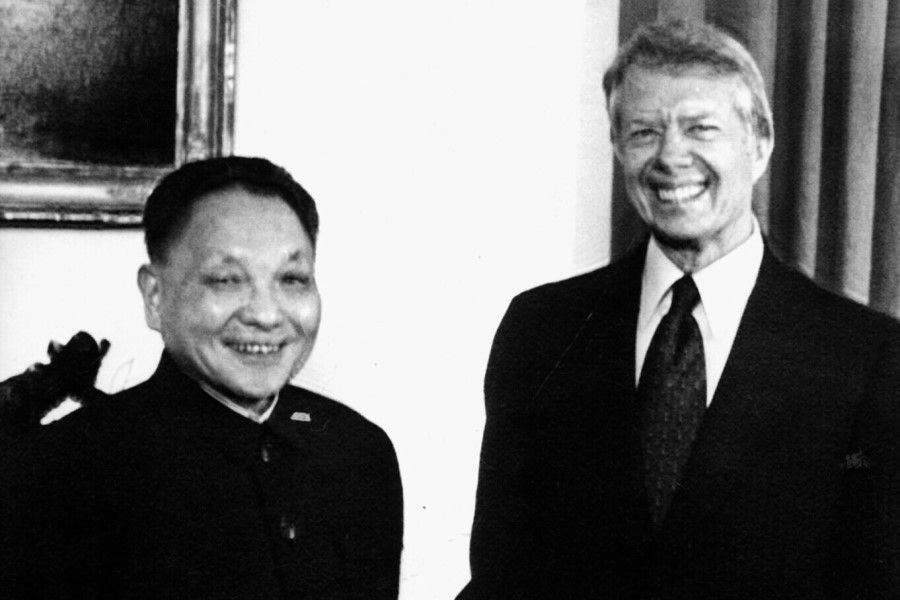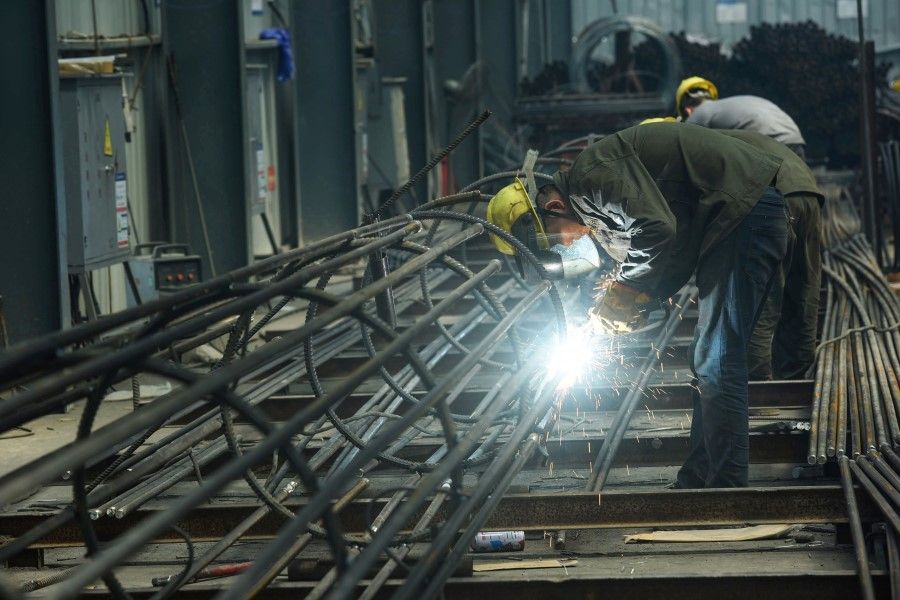What is China's next move? It has two alternatives

Since March, as the coronavirus ravages Europe and the US, the dispute between Western countries and China over how the outbreak started has continued while clearer signs of decoupling between China and the West have emerged. Amid these developments, discussions about the impact of the outbreak on the world economy and political situation and the future of globalisation have been ongoing in the political and academic arenas.
I think the key decider in whether China will be able to continue with globalisation will not come from external factors - the rest of the world wants to accept China and has some expectations of China integrating into the international community and taking on greater leadership responsibilities - but internal factors, meaning its own strategic choices on how it will do so.
There are three main aspects to the expectations of the international community: a more market-oriented economy, more open social management, and diplomacy that is more in line with mainstream global values.

China's strategic choices will not only directly affect whether China can continue with globalisation, but will also decide the future of globalisation. On the one hand, China is the world's second largest economy, with potential to become number one, and with the ability to decide the future global situation. On the other hand, China is the only one of the world's major economies whose system is so hugely different from the leading Western countries. So, China's choices will directly affect the future global situation.
Great expectations
Why do I say the rest of the world wants to accept China? The history of the past 70 years, and especially the past 40 years, proves this. Of course, acceptance comes with expectations. Various countries have different expectations about how China should integrate into the international community and take on greater leadership responsibilities. There are three main aspects to the expectations of the international community: a more market-oriented economy, more open social management, and diplomacy that is more in line with mainstream global values.
The third aspect, diplomacy, is in fact, an extension of the first two aspects, which make up internal governance. Many feel that internal governance and diplomacy should be kept strictly separate. The fact is, the two are inextricably linked. Diplomacy is an extension of internal governance, and also affects internal governance. This is basic knowledge in political studies, and a truth in history and reality.
These expectations of the global community were not clearly articulated when China-US diplomatic relations were established in the late 1970s, but they were in line with the reform and opening up that China was just beginning to embark on, as well as Deng Xiaoping's historic visits to the US and Japan. And when then US President Bill Clinton supported China joining the World Trade Organisation in the late 1990s and early 2000s, these expectations were publicly expressed.
... what should China's officials and people know about the expectations of the international community and the central source of its achievements over the past 40 years? What should its next step be?
China's process of reform and opening up in the past 40 years is what the international community hopes for and wants, and a process of China adjusting its own wants and choices. The better the adjustment, the better China gets along with the rest of the world, and the smoother it will be for China to integrate into the international community, and vice versa.

China's next move - the two alternatives
The key question that China faces now is, after 40 years of reform and opening up and enormous success in building its economy, what should China's officials and people know about the expectations of the international community and the central source of its achievements over the past 40 years? What should its next step be?
If China thinks the expectations of the international community are correct, that its achievements over the past 40 years are due to learning from accepted practices of the international community and correcting its own flaws, then its next step would be to continue on this route towards its own prosperity and strength, and take on greater international leadership as the global community expects.
Conversely, if China thinks the expectations of the international community are incorrect, or even that the current international order - dominated by the mainstream of international society - is unfair, and that its achievements over the past 40 years are because it has done some things differently from the international mainstream while making good use of external resources, then its next step would be to stick to its own approach and even use the strength it has built over the past 40 years to push this approach to the rest of the world, to challenge and change the international order that it feels is unfair, and fight to take on greater international leadership in a way that it thinks is correct.
How will China move? Where is globalisation going? This is not up to the world, but China. The ball is in China's court.
The two alternatives above are well established among the Chinese authorities and people, but which is the more correct and feasible direction that will allow China to get on better with the rest of the world, integrate better with the international community and take on greater leadership, and be better for China and the rest of the world?
The changes in China's diplomacy and the international situation over the past two years have raised these serious questions for the Chinese people. The current coronavirus outbreak is just bringing this question more urgently before the people of China. How will China move? Where is globalisation going? This is not up to the world, but China. The ball is in China's court.
Globalisation will get back on track
I hope and believe that in the medium- to long-term, China will make the right strategic choices and overcome the recent movement towards the decoupling of China and the West, to bring China back into globalisation and push globalisation back on track. I say this because globalisation does make sense, and because of China's unstoppable development and improved adaptability as a result of its reform and opening up.
More importantly, if China makes poor strategic choices, its economy would deteriorate and society would become unstable.
The reform and opening up led by Deng Xiaoping unleashed China's productivity and led to a leap in China's economic development and living standards. It opened up China's thinking and made people more aware. The development and improvement brought about by 40 years of reform and opening up as well as more open thinking will not fundamentally change.
In recent years, while there have been many obstacles to this trend, there are also strong forces driving the trend and keeping obstacles in check. Together, they will prompt China to make the right strategic choices.
More importantly, if China makes poor strategic choices, its economy would deteriorate and society would become unstable. The government would not allow this situation to continue unabated; it would have to - and it would - take remedial measures to get the situation back on track.

Two examples come to mind. First, in the past few years, certain changes have made it difficult for the private sector economy to grow, which has affected the overall economy. In 2018 and late 2019, China's leaders reiterated the importance of developing the private sector economy and rolled out relevant policy measures. Second, the China-US trade conflict has seriously affected China's external environment and economic development. But even though the China-US talks were complicated, in the end, the phase one trade deal stopped the bleeding, at least for now.
Each country has its own comparative advantage at various stages of development, and China will find a new comparative advantage, and its new place in globalisation and the global industrial chain.
In short, in the medium- to long-term, China's national policy of reform and opening-up will not be shaken, and its relations with the rest of the world will not change, nor will its process of integrating into the global economy, or the general trend of globalisation. The process might meet with temporary obstacles, but it will pass, and things will get back on track.
Professor James Wen, a Chinese academic in the US, expressed a concern that if China's relations with the rest of the world continue to deteriorate, it will miss the window for modernisation, because worsening relations will lead to industrial chains moving out of China, and once that happens it will not be easy to get them back. This is a valid concern, but I think there is no need to be overly worried. Each country has its own comparative advantage at various stages of development, and China will find a new comparative advantage, and its new place in globalisation and the global industrial chain.
...but a rough estimate is that China's recent tense relations with the rest of the world will not last beyond 15 years.
But this is not to say that China can disregard being sidelined from the mainstream global framework, as any unnecessary cost should be avoided. If China can make the right strategic choices and stay within the mainstream global framework and avoid unnecessary losses, then why not? Why insist on taking the roundabout route? It is not wise to create difficulties that should not be there, and then overcome them.
Finally, readers might ask how long is the medium- to long-term that I refer to? I cannot give a definite answer, but a rough estimate is that China's recent tense relations with the rest of the world will not last beyond 15 years. Of course, I hope this period is as short as possible, and that China's relations with the rest of the world get back on track along with globalisation, in order to shorten the pain for the Chinese and world economy.
